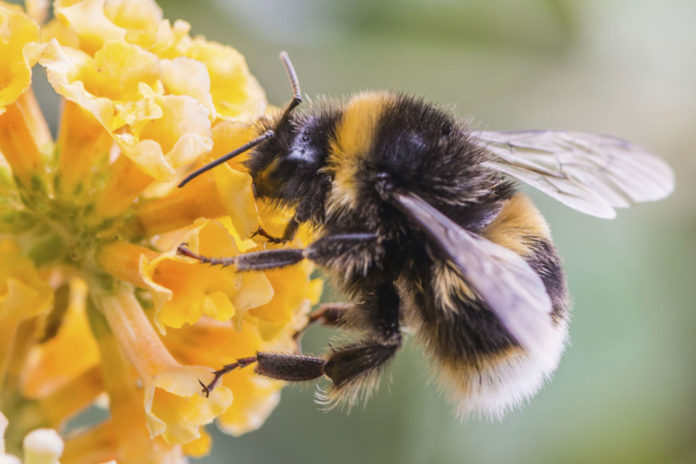
The Government of Ontario recently published new regulations to reduce the use of neonicotinoid pesticides – or “neonics” – on corn and soy crops. By doing so, Ontario has become the first jurisdiction in North America to put restrictions on the use of these nicotine-based chemicals, which are known to have contributed to the decline of the bee population.
Presently, nearly all corn and 60 per cent of soy crops planted in Ontario are treated with neonics, even despite government estimates that as much as 90 per cent of these fields do not have relevant pest threats. The government’s new agricultural guidelines aim to reduce the production of neonic-treated soybean and corn seeds by 80 per cent by 2017.
“The current practice of routinely applying neonics to seeds is like taking a powerful antibiotic each morning when you aren’t sick to guard against a possible bacterial infection,” says Lisa Gue, senior researcher and analyst at the David Suzuki Foundation. “It’s clearly overkill with dangerous consequences.”
These regulations follow a breakthrough study conducted by the international Task Force on Systemic Pesticides. This group of independent scientists reviewed more than 1,000 published studies about the varying effects of neonics, finding clear evidence that the chemicals are lethal to honeybees as well as other important species, such as wild bees, butterflies, earthworms and birds. Because of this, the scientists have concluded that the current widespread use of neonics threatens the ecosystem and is not sustainable.
The new regulations will go into effect on July 1, 2015.










